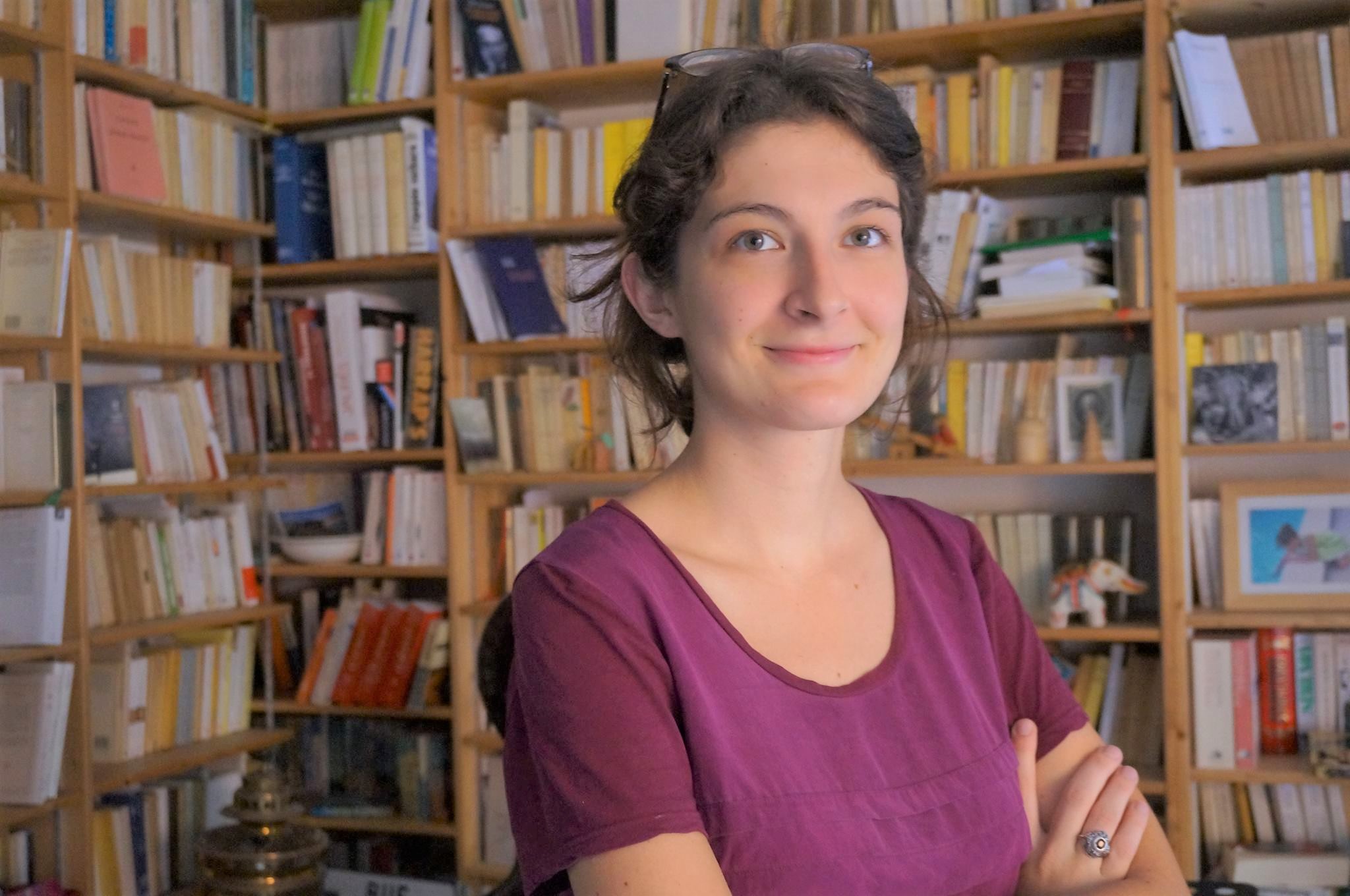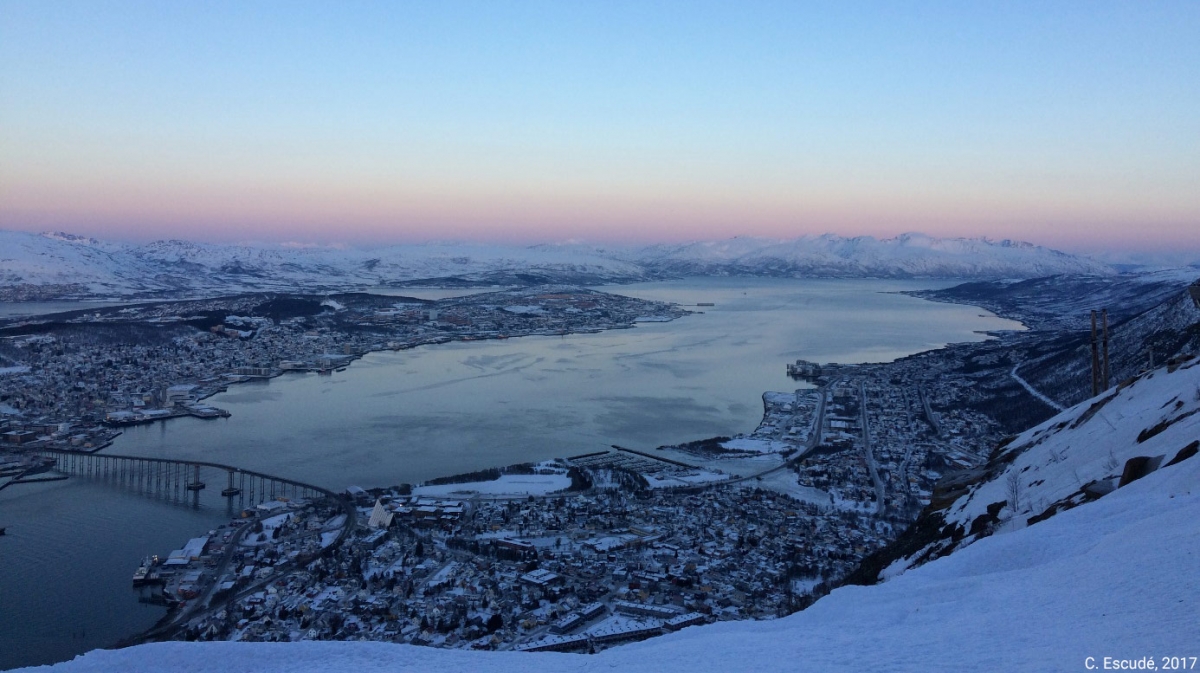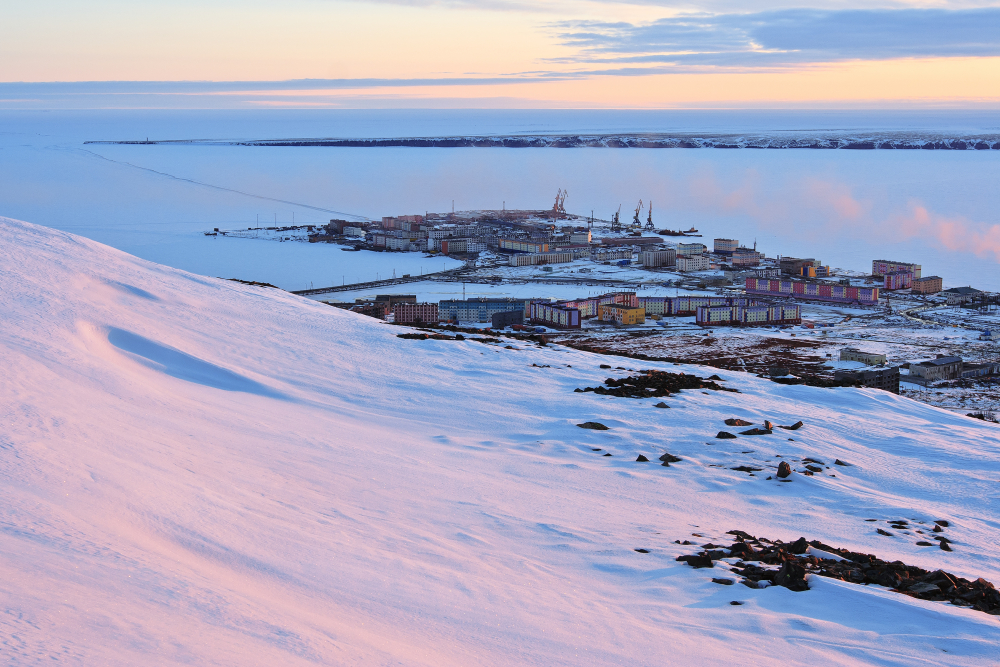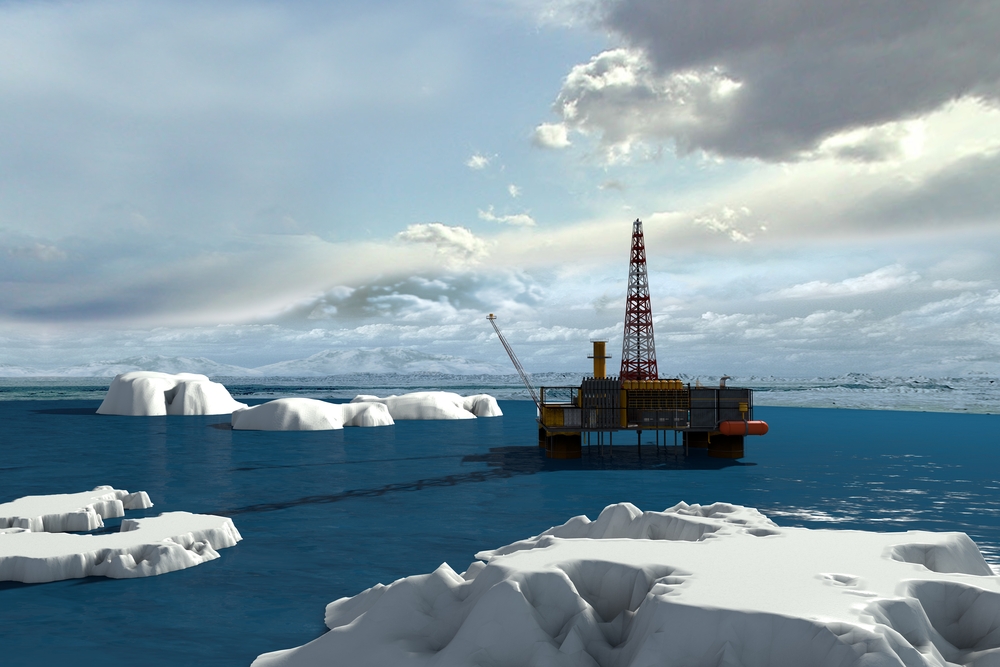How to Govern the Arctic? Interview with Camille Escudé-Joffres

Camille Escudé-Joffres (PhD, Sciences Po) a research associate of the CERI, was awarded the IHEDN prize for her PhD, "Political Cooperation and Regional Integration in the Arctic (1996-2019): Building a Region". A specialist of regional integration in the Arctic, Camille has agreed to answer our questions on her research, past and present.
Your PhD is entitled “Political Cooperation and Regional Integration in the Arctic (1996-2019): Building a Region. The Emergence, Development and Questioning of a new Regional Political Space”. What is the thesis of this research?
I have been interested in the dynamics of international relations in the Arctic since I was a Master’s student (political science, IR). I defended my PhD in September 2020 under the supervision of Guillaume Devin. My PhD was awarded the joint first prize of the IHEDN and focused on the dynamics of the construction of cooperation and regional integration in the Arctic over more than 20 years. The thesis of my PhD is the following: the Arctic is not a finite entity but a geographical ensemble in the making, made and unmade by an assembly of diverse political and social actors.
The governance of the Arctic is often presented as an inclusive model because it leaves a large place for Indigenous people and more generally for non-state actors. What I have sought to show is that Arctic governance has been put to the test since the middle of the 2000s by political and economic events that have triggered the interest of political entities situated beyond the polar circle. Therefore, the traditional limits of Arctic governance established after the Cold War have been challenged. I have observed that the member states of the Arctic Council have a strong will to take over regional governance in the face of attempts by external actors to interfere in decisions concerning the Arctic.
 Tromsø in Norway, Headquarters of the Arctic Council. Photo by Camille Escudé-Joffres
Tromsø in Norway, Headquarters of the Arctic Council. Photo by Camille Escudé-Joffres
In parallel, the excluded actors challenge the actual model of governance, which they judge to be closed and too narrow. They brandish the pretext of the common good to suggest an enlargement of the space of political decision making. There are several ways to achieve this expansion: creating alternative and informal forums that claim to be more open and more democratic (Arctic Circle, Arctic Frontiers for instance); setting up bilateral cooperation (China-Iceland, for example); and exerting pressure through sub-state structures claiming an increased role through a great leap in scale: the example of Quebec’s paradiplomacy is very telling in this perspective.
This tension between exogenous and endogenous logics within the very process of the region’s production makes it very difficult to define strict limits for the Arctic. As such, it is worth insisting on the fact that the process of regional integration that is at stake in the Arctic is in no way irreversible. During my PhD studies I have observed a backsliding of political cooperation and processes of “regional disintegration”. Even if the Arctic remains an incomplete and controversial region because of its constructed nature, I have tried to show how a relevant space is nevertheless built where political action occurs.
What specific field have you explored during this research? What methodology did you follow?
My main primary material comes from semi-structured interviews I conducted with representatives of Arctic states, with various actors willing to intervene in regional governance, with political representatives at other levels (federal, with Indigenous people), and with scientific communities involved in the Arctic integration processes. I conducted interviews in five Arctic countries: Norway, Canada, Iceland, Sweden, and Russia, and in Arctic territories such as Nunavut (Canada). I also conducted participant observation during meetings and Arctic conferences. This work was coupled with research stays at the University of Laval in Canada and the University of Tromsø in Norway.
In addition to this work, I conducted a thorough review of the abundant institutional literature of the Arctic Council and of the Arctic countries’ strategies, as well as grey literature, for instance those found in social media.
What are your current research interests?
I am continuing my investigations on the intersections of various levels of politics from the perspective of a sociology of international relations, and I am interested in the emergence of informal mechanisms that come into competition and sometimes even seek to short-circuit traditional forms of international governance. International conferences in the Arctic are currently privileged platforms of socialisation for non-traditional actors that are sidelined in official organisations. For example, the “Arctic Circle” forum that has taken place in Reykjavik every October since 2013 claims to be an “open and democratic platform”, tacitly opposed to formal organisations such as the Arctic Council. Outside actors of Arctic politics, such as non-Arctic states, federal entities, businesses, think tanks, etc., which are marginalised in formal organisations, tend to adopt these forms of informal international cooperation where they find themselves on equal footing with the Arctic states. These forums are an opportunity for diplomacy for non-traditional actors—i.e. non polar and/or non-state actors—to access Arctic political networks.
Now that Russia has taken the presidency of the Arctic Council for two years starting in May 2021, I am also interested in the perceptions and representations of Russia in the world and their impact on international relations, and on the construction of the Arctic as a region. Russia conducts the most policy and is the most active among the Arctic states, and the country has been a pioneer in terms of its economic and diplomatic strategy in the region. I am currently particularly interested in the role of Russia in Arctic political cooperation, especially because Russian Arctic development is one of Moscow’s current priorities.
 Pevek, Russia. Copyright: Shutterstock
Pevek, Russia. Copyright: Shutterstock
You are currently a research associate with the CERI. Do you have specific projects in the framework of this association?
Being a research associate at the CERI helps me maintain a link with the research that is conducted there, in particular in the field of multilateralism, and to build bridges with polar research, such as during the “Politique de l’Arctique” conference that I co-organised in December 2019. I continue to participate in seminars such as the Groupe de recherche sur l’action multilatérale (GRAM), where I was a discussant in a session on science and international cooperation in the polar regions with Jérôme Chappellaz, the director of the Paul-Emile Victor Institute.
It is very important for me to continue to benefit from this academic anchorage, while adding others, especially abroad. I am also a researcher associated with the Centre québécois d’études géopolitiques, which allows me to work closely with Quebec researchers. In April 2021, I published Géopolitique des pôles with Frédéric Lasserre, a professor at Laval University, and Anne Choquet from the Brest Business School.

Patrol in the Arctic region. Copyright: Shutterstock
Interview by Miriam Périer
Abstract of the PhD: Over the past 30 years, regional governance has been built in the Arctic thanks to the interaction between different levels of political action corresponding to various actors: states, civil society, Indigenous organisations, federal and local governments, NGOs, and private companies. The Arctic is now involved in various mechanisms that tend toward integration, defined as the process by which the regularity and intensity of interactions between societies increases. We are here analysing how political governance has constructed the Arctic as a political region. Post–Cold War top-down political cooperation has led to visible regional institutional integration in the Arctic. This institutional integration stems from states’ desire to protect the environment as a pretext for political cooperation, but also from informal transnational networks, scientific and Indigenous. It then appears that in a context of increased politicisation of the region due to the consequences of climate change, the construction of the Arctic region becomes for the Arctic states a means of excluding certain actors, gradually pushed out of decision-making bodies. In return, the latter widen the limits of the region through new forms of political governance (informal forums, club diplomacy), clearly showing that the region is a political and social reality, always changing and challenged in space and time.










